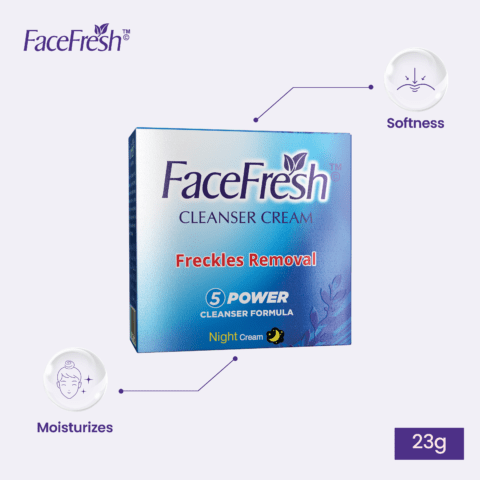Skincare plays a crucial role in maintaining a healthy and vibrant complexion. With the vast array of products available in the market, finding the right skincare routine can be overwhelming. However, by following a few essential steps and understanding your skin’s unique needs, you can discover the perfect skincare regimen that will leave you glowing and confident. In this article, we will guide you through the process of finding the right skincare tailored to your individual needs. So, let’s dive in!
Important Points
- Introduction: Importance of Skincare
- Identify Your Skin Type
- Assess Your Skin Concerns
- Research Ingredients
- Understand Product Labels
- Seek Recommendations and Reviews
- Patch Test Products
- Establish a Basic Skincare Routine
- Choose Products for Specific Concerns
- Consider Your Budget
- Consult with a Dermatologist
- Maintain Consistency
- Adjust as Needed
- Protect Your Skin from the Sun
1. Introduction: Importance of Skincare
Skincare is not just about pampering yourself; it is a vital aspect of self-care and maintaining healthy skin. A proper skincare routine can address specific concerns such as acne, dryness, aging, or hyperpigmentation. Finding the right skincare products will help you achieve a clear, radiant complexion and boost your confidence.
2. Identify Your Skin Type
Understanding your skin type is the first step in finding the right skincare routine. The most common skin types are normal, dry, oily, combination, and sensitive. Each type requires different products and ingredients to maintain optimal balance. Observe your skin throughout the day and determine which category it falls into.
3. Assess Your Skin Concerns
Take a close look at your skin and identify any specific concerns you would like to address. Whether it’s wrinkles, acne, dark spots, or dullness, knowing your skin concerns will help you choose products that target those issues effectively.
4. Research Ingredients
Familiarize yourself with key skincare ingredients that can benefit your skin type and address your concerns. Ingredients like hyaluronic acid, retinol, vitamin C, and niacinamide have proven benefits for various skin conditions. Researching these ingredients will empower you to make informed choices when selecting skincare products.
5. Understand Product Labels
When shopping for skincare products, it’s essential to understand product labels. Look for keywords like “fragrance-free,” “non-comedogenic,” and “dermatologist-tested.” These labels provide valuable information about the product’s suitability for your skin type and its potential to cause irritation.
6. Seek Recommendations and Reviews
Ask friends, family, or trusted beauty professionals for skincare recommendations. Additionally, explore online platforms and read reviews from individuals who have similar skin concerns. Gathering multiple perspectives can help you make a well-rounded decision.
7. Patch Test Products
Before incorporating a new product into your skincare routine, it’s crucial to perform a patch test. Apply a small amount of the product on your inner forearm or behind your ear and observe for any adverse reactions such as redness, itching, or irritation. This step helps you avoid potential allergic reactions.
8. Establish a Basic Skincare Routine
Start with a basic skincare routine that consists of cleansing, toning, and moisturizing. Cleanse your face twice a day to remove dirt, excess oil, and impurities. Follow it up with a gentle toner to balance the skin’s pH levels. Finally, apply a moisturizer to hydrate and nourish your skin.
9. Choose Products for Specific Concerns
Once you have established a basic routine, introduce targeted products to address your specific concerns. For example, if you have acne-prone skin, incorporate a product with salicylic acid or benzoyl peroxide to combat breakouts. Select products based on your unique needs and desired outcomes.
10. Consider Your Budget
Skincare products range in price, and it’s important to consider your budget while building your routine. Remember, expensive doesn’t always equate to effectiveness. There are affordable options available that can deliver excellent results. Prioritize quality over quantity and invest in products that align with your budget.
11. Consult with a Dermatologist
If you have persistent skin issues or concerns, it’s beneficial to consult with a dermatologist. They can provide personalized recommendations based on your skin type, concerns, and medical history. Dermatologists are trained professionals who can guide you in finding the most suitable skincare products.
12. Maintain Consistency
Consistency is key when it comes to skincare. Stick to your routine and give your skin time to adjust to the products. It may take several weeks or even months to see noticeable results, so be patient and stay consistent with your chosen products.
13. Adjust as Needed
As your skin changes over time, so should your skincare routine. Reassess your skin’s needs periodically and make adjustments accordingly. For example, you may need to switch to a more hydrating moisturizer during the colder months or incorporate anti-aging products as you age.
14. Protect Your Skin from the Sun
Sun protection is vital for maintaining healthy skin and preventing premature aging. Always apply a broad-spectrum sunscreen with SPF 30 or higher before heading outdoors. Protecting your skin from harmful UV rays will help maintain the results of your skincare routine.
15. Conclusion
Finding the right skincare routine may require some trial and error, but the effort is worth it. By identifying your skin type, understanding your concerns, and researching ingredients, you can curate a personalized skincare regimen that addresses your needs effectively. Remember to consult with professionals, maintain consistency, and adjust as needed to achieve the best results.



Leave a comment
Your email address will not be published. Required fields are marked *